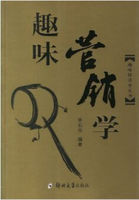On Canting Nonsense.
THE writer now wishes to say something on the subject of canting nonsense, of which there is a great deal in England.
There are various cants in England, amongst which is the religious cant.He is not going to discuss the subject of religious cant: lest, however, he should be misunderstood, he begs leave to repeat that he is a sincere member of the Church of England, in which he believes there is more religion, and consequently less cant, than in any other church in the world; nor is he going to discuss many other cants; he shall content himself with saying something about two - the temperance cant and the unmanly cant.Temperance canters say that "it is unlawful to drink a glass of ale."Unmanly canters say that "it is unlawful to use one's fists."The writer begs leave to tell both these species of canters that they do not speak words of truth.
It is very lawful to take a cup of ale, or wine, for the purpose of cheering or invigorating yourself when you are faint and down-hearted; and likewise to give a cup of ale or wine to others when they are in a similar condition.The Holy Scripture sayeth nothing to the contrary, but rather encourageth people in so doing by the text, "Wine maketh glad the heart of man." But it is not lawful to intoxicate yourself with frequent cups of ale or wine, nor to make others intoxicated, nor does the Holy Scripture say it is.
The Holy Scripture no more says that it is lawful to intoxicate yourself or others, than it says that it is unlawful to take a cup of ale or wine yourself, or to give one to others.Noah is not commended in the Scripture for making himself drunken on the wine he brewed.Nor is it said that the Saviour, when he supplied the guests with first-rate wine at the marriage-feast, told them to make themselves drunk upon it.He is said to have supplied them with first-rate wine, but He doubtless left the quantity which each should drink to each party's reason and discretion.When you set a good dinner before your guests, you do not expect that they should gorge themselves with the victuals you set before them.Wine may be abused, and so may a leg of mutton.
Second.It is lawful for any one to use his fists in his own defence, or in the defence of others, provided they can't help themselves; but it is not lawful to use them for purposes of tyranny or brutality.If you are attacked by a ruffian, as the elderly individual in Lavengro is in the inn-yard, it is quite lawful, if you can, to give him as good a thrashing as the elderly individual gave the brutal coachman;and if you see a helpless woman - perhaps your own sister -set upon by a drunken lord, a drunken coachman, or a drunken coalheaver, or a brute of any description, either drunk or sober, it is not only lawful but laudable, to give them, if you can, a good drubbing; but it is not lawful because you have a strong pair of fists, and know how to use them, to go swaggering through a fair, jostling against unoffending individuals; should you do so, you would be served quite right if you were to get a drubbing, more particularly if you were served out by some one less strong, but more skilful than yourself - even as the coachman was served out by a pupil of the immortal Broughton - sixty years old, it is true, but possessed of Broughton's guard and chop.Moses is not blamed in the Scripture for taking part with the oppressed, and killing an Egyptian persecutor.We are not told how Moses killed the Egyptian; but it is quite as creditable to Moses to suppose that he killed the Egyptian by giving him a buffet under the left ear, as by stabbing him with a knife.It is true that the Saviour in the New Testament tells His disciples to turn the left cheek to be smitten, after they had received a blow on the right; but He was speaking to people divinely inspired, or whom He intended divinely to inspire - people selected by God for a particular purpose.He likewise tells these people to part with various articles of raiment when asked for them, and to go a-travelling without money, and take no thought of the morrow.
Are those exhortations carried out by very good people in the present day? Do Quakers, when smitten on the right cheek, turn the left to the smiter? When asked for their coat, do they say, "Friend, take my shirt also?" Has the Dean of Salisbury no purse? Does the Archbishop of Canterbury go to an inn, run up a reckoning, and then say to his landlady, "Mistress, I have no coin?" Assuredly the Dean has a purse, and a tolerably well-filled one; and, assuredly, the Archbishop, on departing from an inn, not only settles his reckoning, but leaves something handsome for the servants, and does not say that he is forbidden by the gospel to pay for what he has eaten, or the trouble he has given, as a certain Spanish cavalier said he was forbidden by the statutes of chivalry.Now, to take the part of yourself, or the part of the oppressed, with your fists, is quite as lawful in the present day as it is to refuse your coat and shirt also to any vagabond who may ask for them, and not to refuse to pay for supper, bed, and breakfast, at the Feathers, or any other inn, after you have had the benefit of all three.















